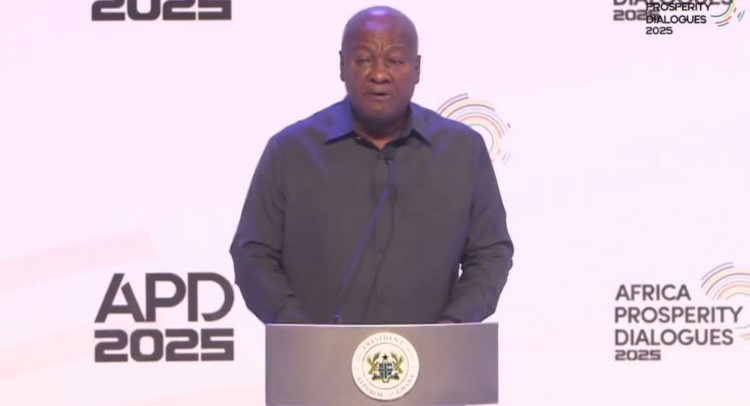President John Dramani Mahama has urged African governments to be committed to partnering with the private sector to help drive industrialisation.
President John Mahama who made the call at the Africa Prosperity Dialogues 2025 in Accra said the industrialisation drive could be achieved by governments through special economic zones that encourage manufacturing and innovation.
He said such partnerships would not only help provide access to finance for small and medium-sized enterprises which are the backbone of economies but also provide investments in technical and vocational education to equip the youth with the skills needed for industries for the future.
He said, “We must invest in infrastructure to facilitate trade, efficient roads, rail networks, ports, and digital connectivity.
“We must strengthen African supply chains to ensure that our industries produce goods and services that meet both regional and global standards,” he said.
The President also highlighted the need for African countries to harmonize their trade policies to eliminate non-tariff barriers and reduce the cost of doing business across borders while working swiftly to operationalise the Pan-African payment and settlement system to facilitate the payment of goods and services across the continent.
According to the President, a commitment to these actions would help unlock a $3.4 trillion market, that will help create jobs and prosperity for millions of Africans across the continent.
“We must move beyond being exporters of raw material to become producers of finished goods, whether it is cocoa in Ghana, oil in Nigeria, puppies in Zambia, or diamonds in Botswana, we must process and add value to our natural resources,” he stated.
The President explained that by partnering with the private sector, African economies will not only increase their share of global trade but also create sustainable jobs for people, especially young people.
He also called on African leaders to indigenize ownership of their natural resources with the availability of capital and technology to increase participation in the exploitation of their natural resources.
By Ebenezer K. Amponsah


